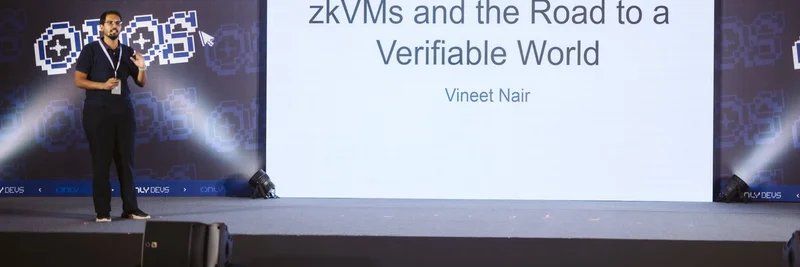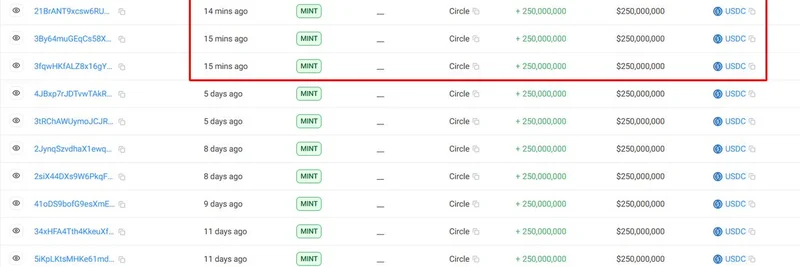Superteam India recently hosted an exciting developer event, live-tweeting highlights from various speakers diving deep into Solana's ecosystem. If you're into building on Solana—especially if you're tinkering with meme tokens—these insights could give you a serious edge. Let's break down the key talks in a way that's easy to follow, even if you're not a hardcore dev.
Exploring ZK Proofs and zkVMs
Kicking things off, Vinay from Superteam delved into zero-knowledge proofs (ZK proofs for short). These are cryptographic methods that let you prove something is true without revealing the underlying data—super useful for privacy in blockchain apps.
He spotlighted zkVMs (zero-knowledge virtual machines), which run computations off-chain and verify them on-chain efficiently. Current proof systems across crypto were compared, with a shoutout to Jolt, a SNARK-based zkVM from a16z crypto. This tech could revolutionize scalable apps, making it easier to build complex meme token mechanics without bogging down the network.
Lightning-Fast Testing with LiteSVM
Next, Exo from Jupiter introduced LiteSVM, a speedy library for testing Solana programs. It comes with JavaScript bindings, flexible signature verification, and blazing performance. For meme token creators, this means quicker iterations on your smart contracts—test ideas fast without waiting around.
Surfpool: Simulating Mainnet Locally
Micaiah demoed Surfpool, a tool blending localnet and mainnet data. Run simulations of Solana's mainnet right on your machine, inspect transactions in detail, and use a universal faucet—all in just 30MB of space and 128MB RAM. Imagine stress-testing your meme token launch without real-world risks.
Why Senior Devs Should Embrace Web3
Harkirat made a compelling case for web3 ownership. With AI making building accessible to anyone, the real differentiator is ownership—something blockchain nails. For meme communities, this underscores how tokens can create true stakeholder alignment.
Building Your Own RPC Stack
Tired of hefty RPC bills? Wilfred from Triton One explained the RPC 2.0 stack using Project Yellowstone. He broke down read and write layers and emphasized supporting open-source projects. If you're running a meme token bot or dApp, rolling your own RPC could slash costs.
Running a Solana Validator Like a Pro
Dhruv from Ice Staking shared tips on launching and maintaining a Solana validator with 100% uptime. From hardware setup to monitoring, this is gold for anyone staking or running nodes—key for meme token ecosystems relying on network stability.
Lazorkit: On-Chain Passkey Infrastructure
Andrew and Chau unveiled Lazorkit, enabling smart wallets via passkeys. Ditch seed phrases for user-friendly onboarding. This could make meme token wallets more accessible, boosting adoption among non-techies.
Helius Labs: Powering Solana Infra
Niks from Helius Labs discussed their Solana-native tools, like hSOL and account indexers. They tackle engineering challenges head-on, building the backbone for apps—including those wild meme token projects.
Winning Solana Blockspace
Sujith from Astralane shared strategies for getting transactions included in blocks: timing, infrastructure, and routing matter. For meme token snipers or launchers, mastering this means beating the competition.
Crypto x AI with SendAI
Kanishk and Srinivasa from SendAI tackled agentic wallets, distributed workflows, and AI agent evals. Think AI guards for your crypto—perfect for automating meme token interactions safely.
Building a Parallel Financial World
Harsh highlighted Solana's speed: settling in milliseconds versus TradFi's days. Start market making with just $10, not $250k. This democratizes finance, opening doors for meme token liquidity providers.
The Rise of Prop AMMs on Solana
Dhrumil from Ranger Finance analyzed proprietary automated market makers (AMMs) dominating volume. Bullish short-term but bearish long-term—insights for meme token traders navigating DEXes.
High-Performance Packet Receivers
Harsh dove into designing packet receivers for Agave, Solana's client. This low-level stuff ensures network efficiency, indirectly supporting fast meme token trades.
Mithril: Efficient Full Node Verification
Dubbel from Overclock introduced Mithril, a Go-based verifier slashing resource needs. Makes running full nodes more accessible, strengthening the Solana network for all users.
Events like this from Superteam India show Solana's vibrant dev scene. Whether you're building the next viral meme token or just curious about blockchain tech, these tools and ideas can level up your game. Stay tuned for more updates on meme-insider.com!




